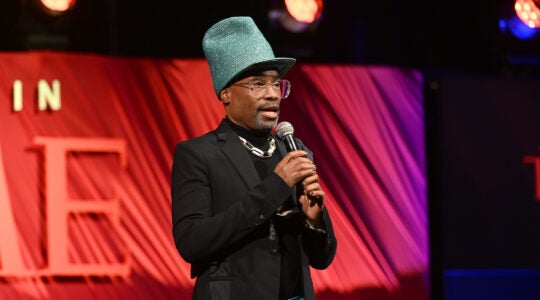I attended a Washington Institute for Near East Policy briefing on a trip to the region recently by top staff and by major donors.
There was much to chew on in the presentation, particularly in terms of the 90 day extension on the partial settlement freeze the administration hopes to extract from Israeli Prime Minister Benjamin Netanyahu.
The message from David Makovsky, WINEP’s senior analyst of the region, and Robert Satloff, WINEP’s director: Keep expectations low. If Israel agrees to the moratorium, it doesn’t mean there’s going to be a breakthrough on day 91. The best that can be expected is that a light at the end of the tunnel might be visible by then — and strong enough to keep the Israelis and the Palestinians at the table.
The critical question, in Makovsky’s presentation, is where Bibi stands: He apparently made a verbal commitment to Hillary Clinton, the U.S. secretary of state, in his meeting with her ten days ago to come out of the 90 days with a plan that would concretize territorial compromise. Bibi will say, according to this scenario. what he is prepared to relinquish. On the other hand, the delegation heard from folks in the coalition, that Bibi will not give on territory unless he gets something from the Palestinians — presumably (my presumption) a recognition of Israel as Jewish or somesuch.
Don’t hold your breath, meantime. As I wrote here, the Obama administration has a letter ready to go outlining all that Bibi would get for going ahead with the 90-day freeze, including 20 extra (on top of 20 already promised) state of the art F-35 combat aircraft.
But Bibi is the king of Columbo-style negotiating ("Just one more thing," he turns and says, as he’s walking out of the door.) He wants a pledge on Jerusalem — what kind of pledge, we’re not sure. A formal U.S. recognition that building in Jerusalem is not like building in the West Bank? We don’t know yet.
Meanwhile, the letter is stuck in the franking machine.
The other takeaway is the delegation’s positive impression of the Palestinian leadership. "No longer whining," is how Satloff put it, i.e., invested in institution building and … optimistic.
Makovsky noted the strides the Palestinian Authority has made in combating incitement, taking over Hamas run charities and booting out of their jobs violence-inciting imams as well as changing some textbooks to remove objectionable references to Jews.
I asked Makovsky if WINEP — with its formidable collection of intellects, a forceful voice in the pro-Israel world — planned to take that message to the organizational Jewish world, which reflexively makes an issue of incitement without noting the strides.
He and Satloff said yes, with the caveat that regressions into incitement must also be noted — most recently the idiotic "study" denying a Jewish claim to the Western Wall. Satloff recalled being energized by the meeting with the P.A. leadership, and then being chauffered down Yahiya Ayyash boulevard — named for the "Engineer," assassinated by Israel in 1996, and whose singular accomplishment was slaughtering Israeli civilians.
"These are issues people need to be vigilant about," Makovsky said. "If there are 30 metrics" to measure progress, "if we only look at one metric, we’re missing a lot of the metrics."
Added Satloff: "We need to recognize what needs to be improved and recognize and praise the progress that’s been. We need to stay away from hysteria and its opposite, whitewash."
JTA has documented Jewish history in real-time for over a century. Keep our journalism strong by joining us in supporting independent, award-winning reporting.





